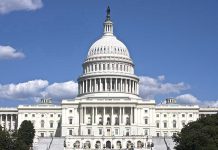
When a Senate candidate in Maine publicly called himself a “communist,” he ignited a political firestorm that could reshape how Americans perceive ideology in the age of social media scrutiny.
Story Snapshot
- A Democratic Senate candidate’s past self-identification as a “communist” triggers unprecedented debate in Maine and nationwide.
- The controversy exposes deep ideological rifts in the Democratic Party and tests the boundaries of acceptable political discourse.
- Media and opponents weaponize Costello’s remarks, pressuring party leaders and shifting voter sentiment in a pivotal Senate race.
- Expert observers see lasting consequences for candidate vetting and the language of ideology in high-stakes American elections.
The Unraveling of a Political Identity
David Costello’s emergence as a Democratic Senate hopeful in Maine came with an unexpected legacy—his own words. Early in the 2020s, Costello posted on social media and gave interviews describing himself as a “communist” and supporting radical economic reforms. These statements, once obscure, resurfaced as he launched his campaign in mid-2025. Within weeks, Maine’s political circles and national media seized on the story, transforming Costello from an unknown progressive activist to the subject of heated debate about the role of ideology in American politics.
Costello’s explicit use of “communist”—a label rarely embraced by major-party candidates—instantly divided opinion. Maine’s electorate, renowned for its independent streak and moderate tendencies, became a battleground for a larger question: How far left is too far? The Democratic Party, already grappling with tensions between its moderate and progressive factions, faced uncomfortable choices. Would supporting Costello risk alienating swing voters and jeopardize a crucial Senate seat, or could the party weather the storm by emphasizing its commitment to democratic values?
Party Reactions and the Battle for the Middle
The Maine Democratic Party responded with caution. Leaders issued statements supporting Costello’s right to political evolution, while underscoring the party’s dedication to the rule of law and democratic institutions. Costello himself moved quickly to clarify his views, saying, “My views have evolved. I believe in a fairer, more just America, but I am committed to working within our democratic institutions.” His campaign pivoted to focus on pragmatic reforms, hoping to reassure moderate and independent voters unnerved by the controversy.
Republican opponents capitalized on the moment, launching ads and statements that painted Costello as dangerously radical. National media amplified the debate, turning Costello’s story into a bellwether for broader questions about the direction of the Democratic Party. Early polling showed Costello’s support among moderates dipping, creating a volatile environment where every statement, clarification, and campaign appearance carried outsized weight.
Expert Analysis: Ideology and Electability in the Spotlight
Political scientists and campaign strategists weighed in with sobering assessments. Identifying as “communist” remains a political third rail, especially in swing states like Maine. Historians drew parallels to the Red Scare era, reminding audiences of America’s enduring suspicion toward far-left ideologies. The University of Maine’s Political Science Department observed, “Maine voters value independence, but explicit communist identification is likely a bridge too far for most.” Progressive activist groups defended Costello’s right to ideological exploration, but urged him to prioritize policy over labels to reconnect with skeptical voters.
Conservative commentators argued that the controversy proved the Democratic Party was drifting leftward beyond the comfort zone of ordinary Americans, while progressive voices accused the media of sensationalism and distraction from real policy debates. Mainstream local outlets provided balanced coverage, including Costello’s clarifications and the party’s strategic recalibrations. National sources contextualized the story as a test case for future campaigns—how much ideological baggage can a candidate carry before it becomes a liability?
Lasting Implications for American Politics
The Costello saga is a cautionary tale for the digital age. Short-term fallout includes increased scrutiny of Costello’s campaign and potential loss of moderate support in a race with national implications. Longer term, the episode may reshape how candidates discuss their ideological journeys and how parties vet contenders in competitive states. Political consultants are likely to intensify background checks and message discipline, while media outlets reaffirm their role in opposition research and controversy amplification.
Maine’s voters now face a choice shaped by more than policy—it’s a referendum on the boundaries of acceptable political identity. The outcome will reverberate beyond the Pine Tree State, influencing how national parties balance ideological diversity with electability in an era where every tweet and interview can become a headline. Costello’s journey from self-described communist to mainstream contender is far from over, and its lessons will echo in campaign war rooms and voter conversations for years to come.
Sources:
Deleted posts urging violence haunt Democratic Senate hopeful Maine race
Maine Senate candidate promoted violent political action in since-deleted online posts
Maine Senate candidate disavows Reddit posts as ‘me f’
Maine Democratic Senate candidate Graham Platner apologizes for Reddit posts


















